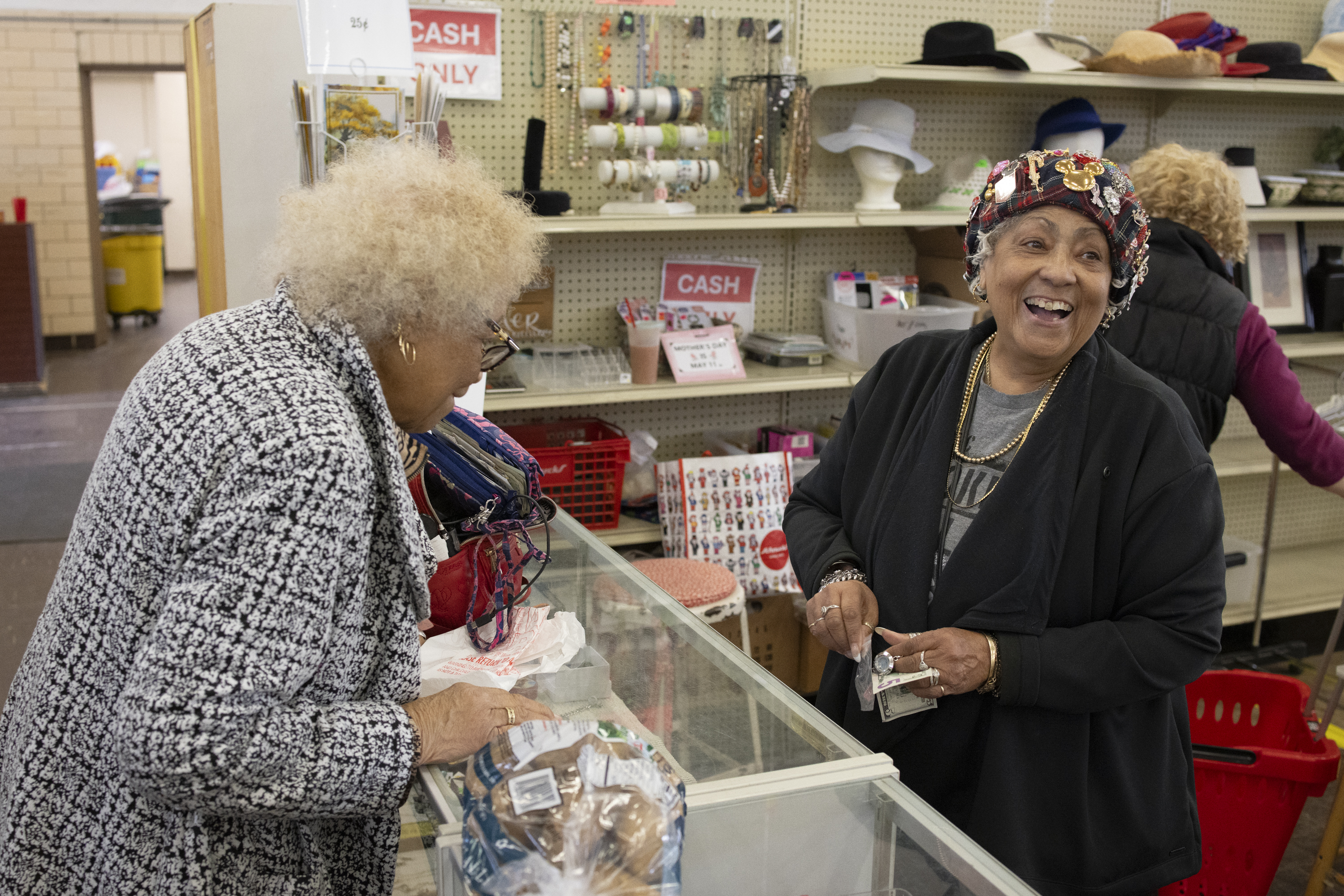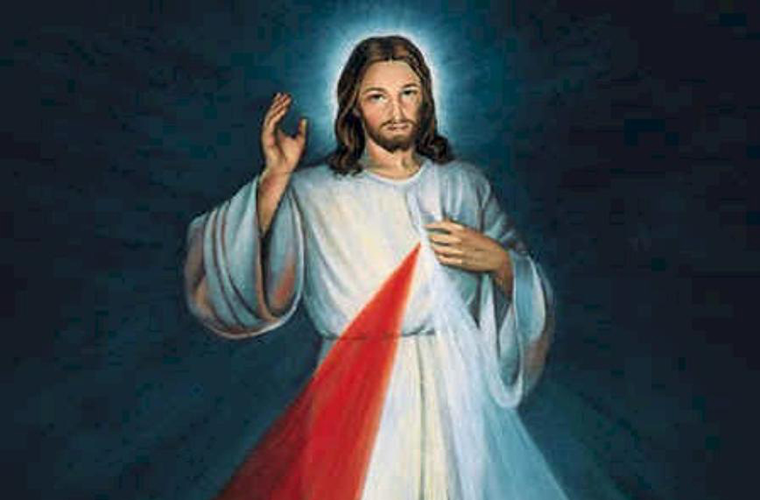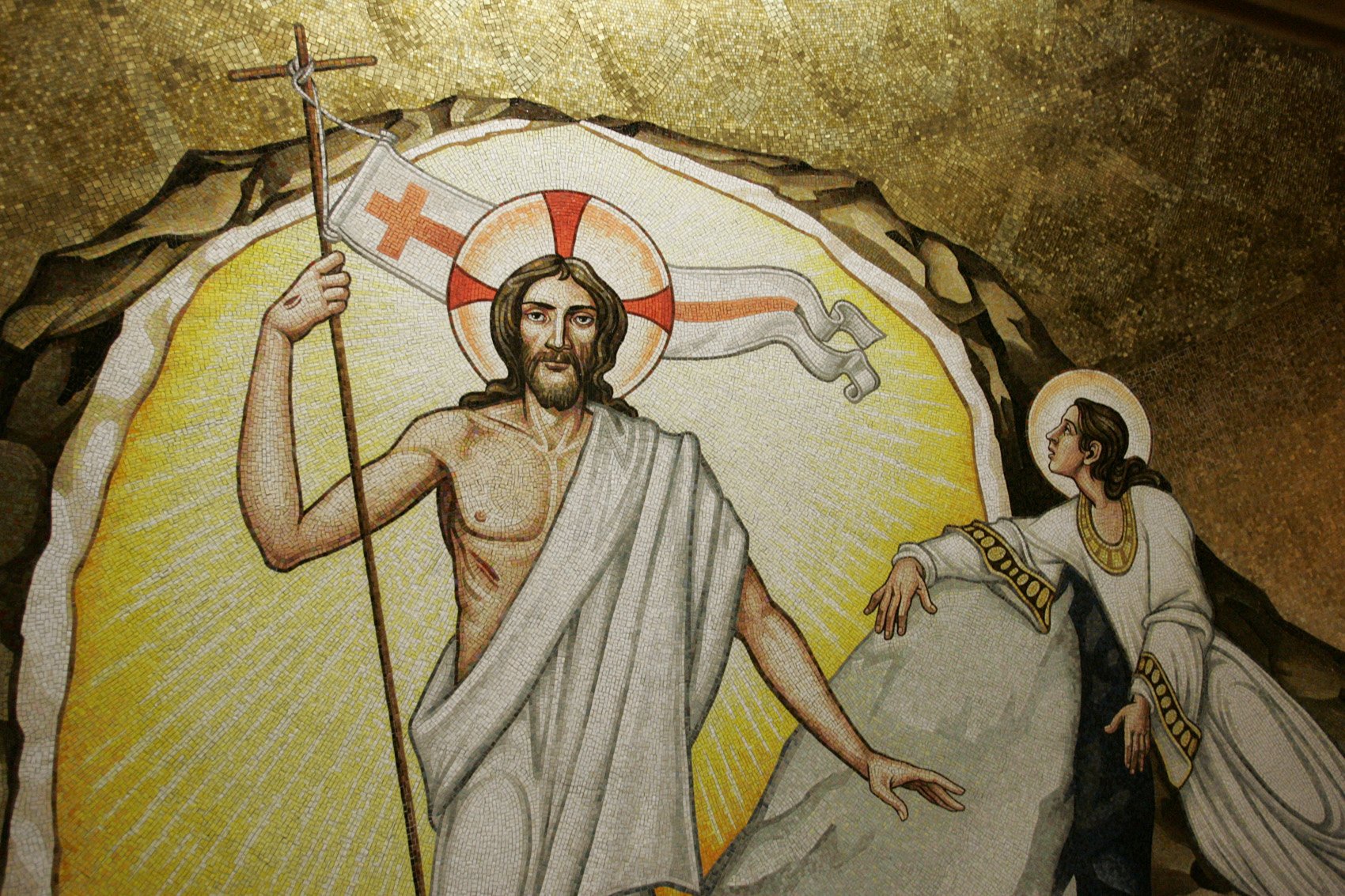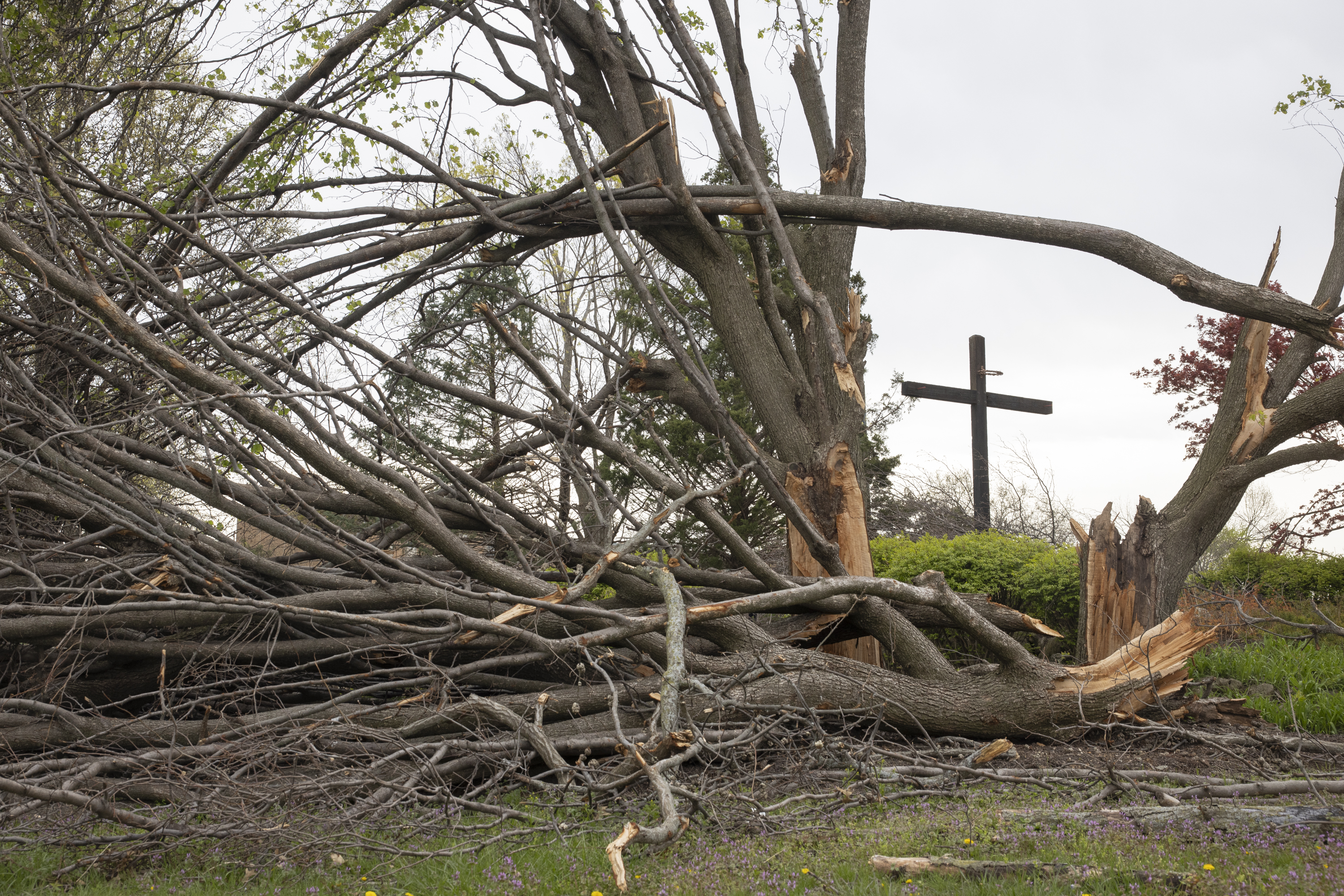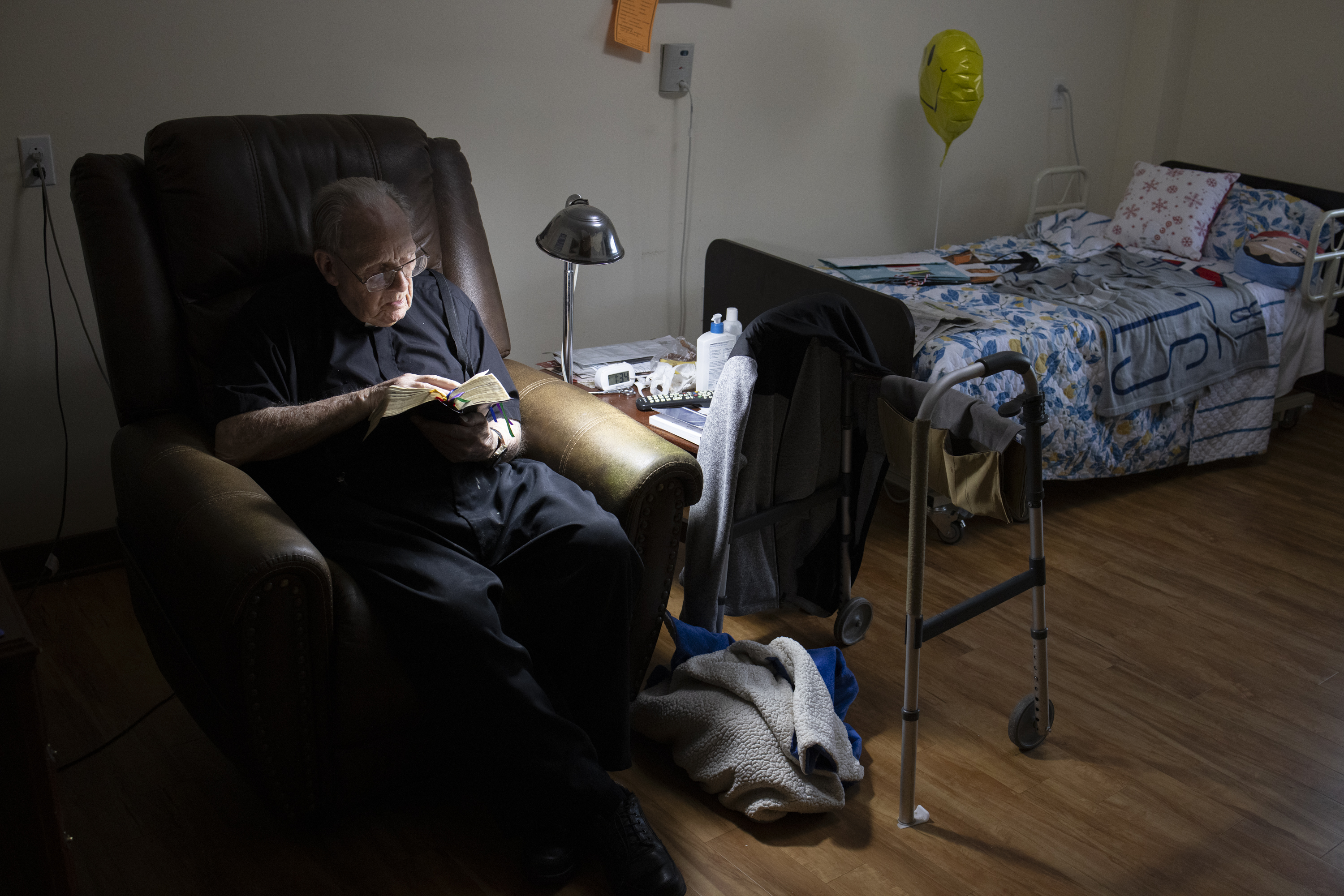Maafa procession in New Orleans acknowledges the pain of the slave trade; Archdiocese of St. Louis to hold similar event in June
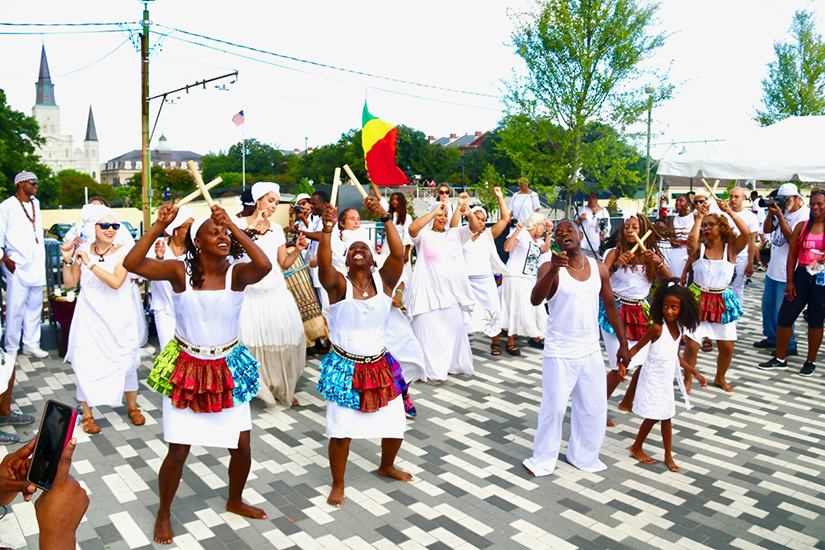
Maafa commemoration and procession acknowledging the tragedy of the transatlantic slave trade has a long history in New Orleans. A similar event will be held in the Archdiocese of St. Louis this summer
The vastness of the Mississippi River in New Orleans is overwhelming to Juanita Blackshear when she reflects on the city as a center for the slave trade in the early 19th century.
As a student in the early 2000s at the Institute of Black Catholic Studies at Xavier University in New Orleans, Blackshear participated in a Maafa, a gathering and procession commemorating the historic atrocities and impact of the African slave trade in the southern port city.
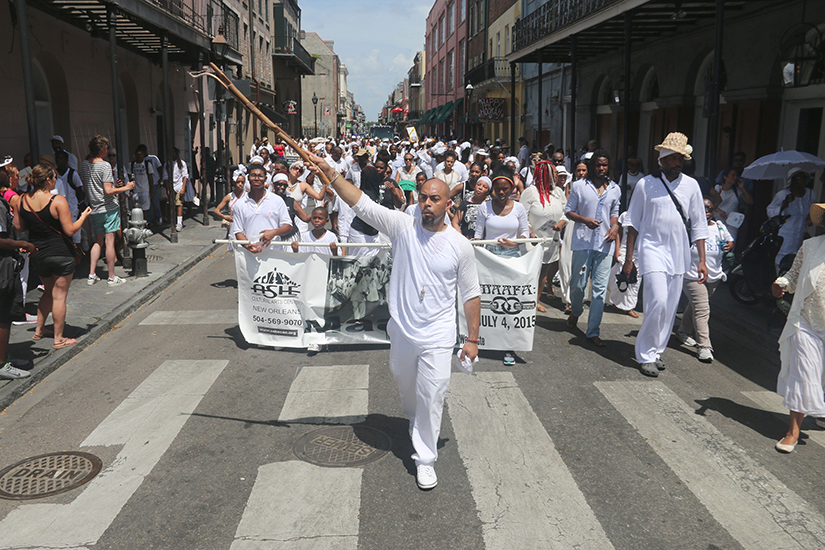
“It’s a very moving experience. It’s hard to put into words,” said Blackshear, a member of St. Matthew the Apostle Parish in St. Louis and a theology teacher at Cardinal Ritter College Prep. “From my perspective, I thought about the possibility of some of my ancestors coming here. Their lives changed from the moment they were captured and enslaved.”
New Orleans has hosted a Maafa remembrance since 2000, organized by the Ashé Cultural Arts Center. The annual event, typically held in July, was influenced by the work of St. Paul Baptist Church in Brooklyn, then led by New Orleans-born Rev. Johnnie Ray Youngblood. Several other cities in the United States have hosted similar events.
The Archdiocese of St. Louis’ Office of Racial Harmony announced recently that a Maafa procession will take place June 18 in Downtown St. Louis. (See related.)
Maafa is a Swahili word that means “great disaster” and refers to the period called the Middle Passage or transatlantic slave trade. During that time, millions of captives from Africa were brought to the Americas and used for labor. Many were persecuted, beaten and separated from their families.
New Orleans’ event begins with drummers, Mardi Gras Indians and African dancers at Congo Square, an open space where enslaved and free Blacks gathered throughout the 19th century for meetings, open markets and African dance and drumming celebrations.
The procession continues through the historic Tremé neighborhood, with a brief stop at St. Augustine Catholic Church, the site of the Tomb of the Unknown Slave and other historical markers related to the slave trade. It ends at the Mississippi River, with drumming, dancing, singing and the release of flowers in tribute to ancestors.
Maafa is a formal acknowledgement of the victims of the slave trade, and its purpose transcends beyond that specific time and space, said Frederick “Wood” Delahoussaye, chief creative officer with the Ashé Cultural Arts Center.
“Inside the element of commemoration is a celebration,” looking at both the brutal and beautiful aspects, Delahoussaye said. “It is necessary to acknowledge the trauma, but we celebrate our collective survival, our collective resistance and resilience. We honor these things through the memory of our ancestors. So many of them made it through (that time) so we could be here. We also honor those who did not make it and the sacrifices they made.”
Dr. Ansel Augustine, director of the Office of Black Catholic Ministries for the Archdiocese of New Orleans, has participated in Maafa remembrances as a drummer. The singing, dancing, prayers and spoken words that are shared are a reflection of the diverse experiences of the African people who came to New Orleans centuries ago and were enslaved.
“The whole purpose is to remember who we are and whose we are,” Augustine said. “As our faith tells us, as baptized individuals, our calling is to create a more just society for future generations.” Catholics who participate also see it as an opportunity to reflect on the dignity of the human person, created in the image and likeness of God, he added.
Blackshear, who is looking forward to St. Louis’ first Maafa commemoration, said the experience in New Orleans allowed her to go deeper into the reality of the slave trade and how that had a profound impact upon subsequent generations.
“It’s something that once you’ve experienced it, it does change you,” she said. “While I was there casting my flowers (into the river), I pictured my ancestors coming off of the ship. I marvel at this place where we can come and experience this.”
>> Maafa in St. Louis
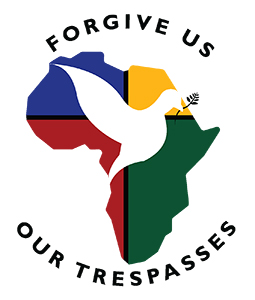
The Archdiocese of St. Louis will host “Forgive Us Our Trespasses,” a Maafa commemoration and procession on Saturday, June 18, in Downtown St. Louis.
Maafa, which is a Swahili word for “great disaster,” is a traditional procession to memorialize the lives of those lost during the Middle Passage, or transatlantic slave trade.
Archbishop Mitchell Rozanski and other faith leaders will begin the event at 9 a.m. with a prayer service at the Basilica of Saint Louis, King of France (Old Cathedral).
The event also will include a formal acknowledgement of the Archdiocese of St. Louis’ past involvement with the institution of slavery. The archdiocese has been researching its involvement in the slave trade as part of an effort called “Forgive Us Our Trespasses.”
For more information, contact Joyce Jones at joycejones@archstl.org or Eric Fair at ericfair@archstl.org.
The vastness of the Mississippi River in New Orleans is overwhelming to Juanita Blackshear when she reflects on the city as a center for the slave trade in the early … Maafa procession in New Orleans acknowledges the pain of the slave trade; Archdiocese of St. Louis to hold similar event in June
Subscribe to Read All St. Louis Review Stories
All readers receive 5 stories to read free per month. After that, readers will need to be logged in.
If you are currently receive the St. Louis Review at your home or office, please send your name and address (and subscriber id if you know it) to subscriptions@stlouisreview.com to get your login information.
If you are not currently a subscriber to the St. Louis Review, please contact subscriptions@stlouisreview.com for information on how to subscribe.

